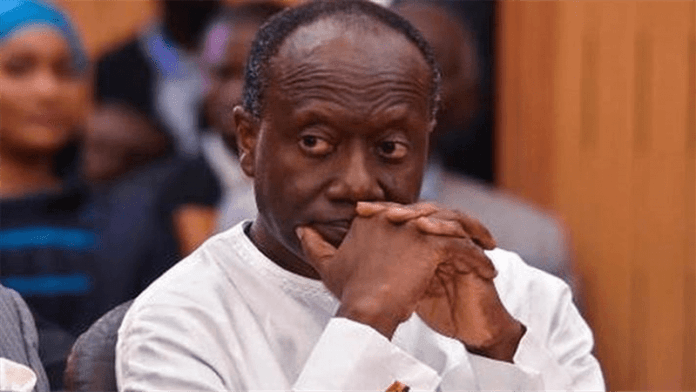A Global Financial Analyst, Dr Joshua Bamfo, has said although all the macro economic indicators were pointing to the right direction during the initial days of the Akufo-Addo administration, the government failed to assess whether or not the debt situation was sustainable.
For him, the debt situation was the Achilles heel of the economy which the government failed to pay attention to.
Ghana’s economy has been facing severe challenges, a situation that has compelled the government to go to the International Monetary Fund (IMF) for support.
Some watchers including a Professor at the University of Ghana Business School, Godfred Bokpin have called for the resignation of the Finance Minister Ken Ofori Atta over the challenges.
In his view, the country has reached the stage where it needs fresh ideas at the Finance Ministry on how the country can come out of the economic challenges.
Speaking in an interview with 3Buisness on the sidelines of the Imani Ghana-GIZ forum in Accra on Wednesday, he said “I think that we need fresh minds, we need fresh ideas, we need a different face from the Ministry.
“I do recognize the current Minister of Finance, perhaps has done his best for the country and I think that we should be able to recognize that we are at the point where somebody also needs to continue.”
But speaking on the Ghana Tonight show with Alfred Ocansey on TV3 Thursday August 25, Dr Bamfo said “I think this is the time for us to challenge the current Finance Minister and his team to actually turn this back around. Because their track records, at least for the first three years, show a performance that was excellent, that investors had confidence in, there was a lot of Foreign Direct Investment (FDIs) as well.
“So, I am not of the view that the best way to go about solving this issue is for the president to kick the Minister of Finance out. However, what is very important is to rebuild credibility. I fully agree that the way and manner going to the IMF was handled wasn’t the most credible . I believe the Ministry should have known that we have some significant challenges.”
He added “we need to ask ourselves, why do we we find ourselves in this particular situation where investors have lost confidence in the Ghanaian issued bonds? It has to do with evaluation by independent credit rating agencies- S&P, Fitch and Moodys’, who have evaluated the performance of the economy and then made the call that our sovereign credit had to be downgraded.
“Most investors will look at some of these ratings to make decisions whether to make this kind of portfolio investments in terms of purchasing our bonds or not.
“So for me, fundamental to that is, how do we turn the macro economic indicators in our favour to win back some of these confidence? That is where the focus should be. It begs the question, who is the appropriate person who is competent to be able to turn things around in our favour.
“When the NPP government took power in 2017, most of the macro economic indicators were trending in the right directions. We had inflation drop from then, one of the highest, 19 per cent all the way to a single digit within the Bank of Ghana target. We had economic growth rate consistently on an average of about 7 per cent for 2017, 2018 and 2019 prior to Covid-19 in 2020.
“We had interest rate which is the cost of borrowing so that businesses can invest, also trending downwards. So we had most of the macro economic indicators trending in the right direction, exchange rate was more stable but there was one area that we didn’t pay much attention to which was actually the Achilles heel of this economy, which was whether our debt was sustainable or not.
“Bear in mind, you don’t accumulate debt overnight, our debt to GDP ratio as of 2016 before the current government came in was around. When the government came in somewhere 2012, this was around somewhere 30 per cent, so they added almost 20 per cent to it. In 2020, Covid period, it then shot up from 62 per cent to about 78 per cent. Today, it is hovering a little over 80 per cent.
“So clearly, we see that the numbers went haywire during the Covid period and the lingering effect of Covid and unfortunately, just about when we were trying to stabilise the economy we had the Russia-Ukraine crisis also kicking in, making things much difficult not only for Ghana but global economy.”
By Laud Nartey|3news.com|Ghana


